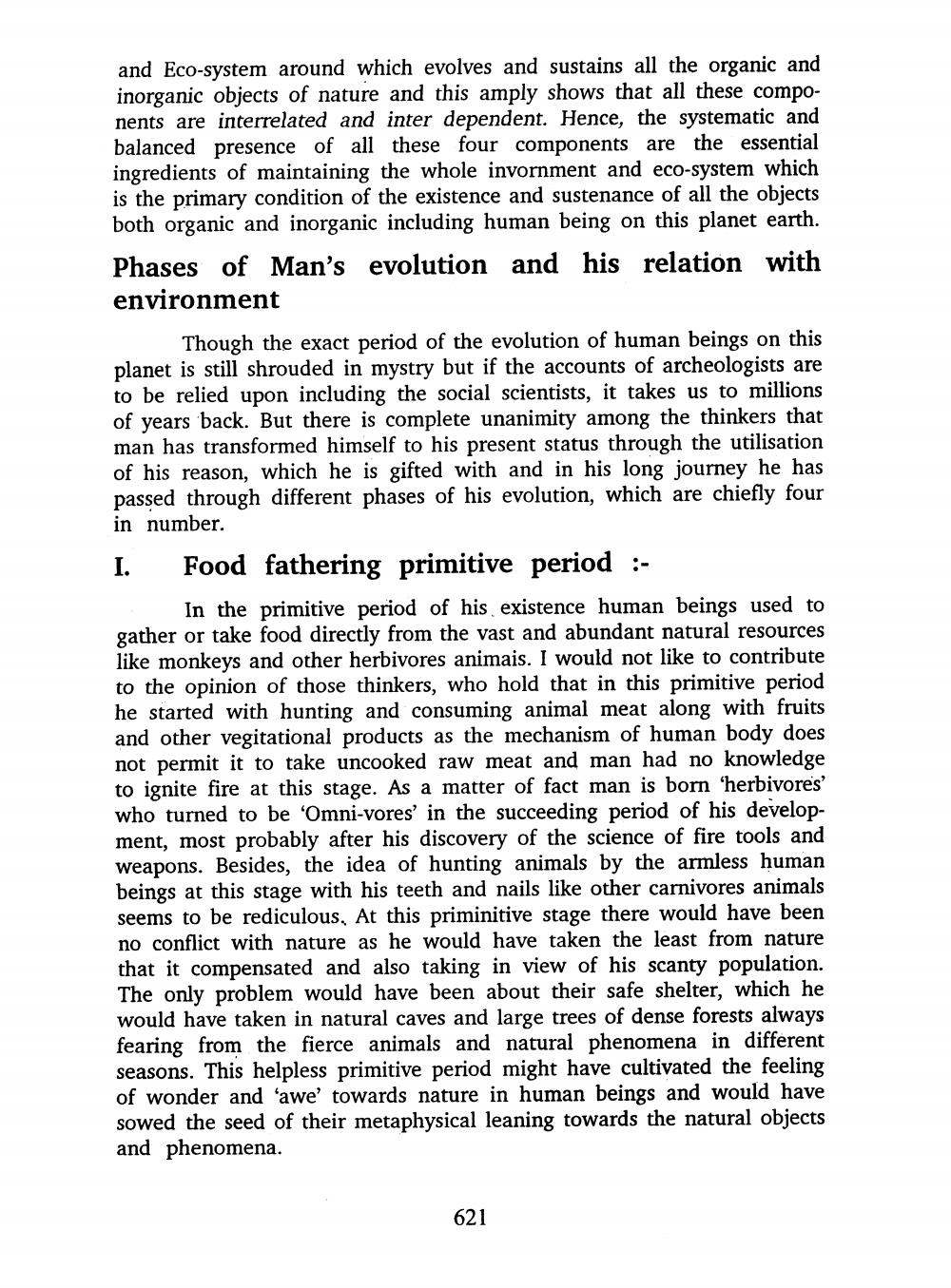________________
and Eco-system around which evolves and sustains all the organic and inorganic objects of nature and this amply shows that all these components are interrelated and inter dependent. Hence, the systematic and balanced presence of all these four components are the essential ingredients of maintaining the whole invornment and eco-system which is the primary condition of the existence and sustenance of all the objects both organic and inorganic including human being on this planet earth. Phases of Man's evolution and his relation with environment
Though the exact period of the evolution of human beings on this planet is still shrouded in mystry but if the accounts of archeologists are to be relied upon including the social scientists, it takes us to millions of years back. But there is complete unanimity among the thinkers that man has transformed himself to his present status through the utilisation of his reason, which he is gifted with and in his long journey he has passed through different phases of his evolution, which are chiefly four in number.
I.
Food fathering primitive period :
In the primitive period of his existence human beings used to gather or take food directly from the vast and abundant natural resources like monkeys and other herbivores animais. I would not like to contribute to the opinion of those thinkers, who hold that in this primitive period he started with hunting and consuming animal meat along with fruits and other vegitational products as the mechanism of human body does not permit it to take uncooked raw meat and man had no knowledge to ignite fire at this stage. As a matter of fact man is born 'herbivores' who turned to be 'Omni-vores' in the succeeding period of his development, most probably after his discovery of the science of fire tools and weapons. Besides, the idea of hunting animals by the armless human beings at this stage with his teeth and nails like other carnivores animals seems to be rediculous. At this priminitive stage there would have been no conflict with nature as he would have taken the least from nature that it compensated and also taking in view of his scanty population. The only problem would have been about their safe shelter, which he would have taken in natural caves and large trees of dense forests always fearing from the fierce animals and natural phenomena in different seasons. This helpless primitive period might have cultivated the feeling of wonder and 'awe' towards nature in human beings and would have sowed the seed of their metaphysical leaning towards the natural objects and phenomena.
621




